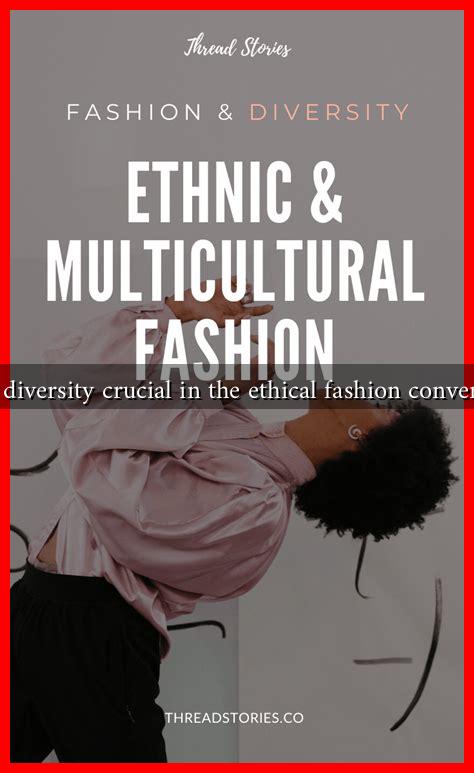-
Table of Contents
Why is Diversity Crucial in the Ethical Fashion Conversation?
The fashion industry has long been criticized for its environmental impact, labor practices, and lack of inclusivity. As the conversation around ethical fashion evolves, the importance of diversity in this dialogue becomes increasingly evident. Diversity encompasses a range of factors, including race, gender, socioeconomic status, and cultural backgrounds. This article explores why diversity is essential in the ethical fashion conversation and how it can lead to more sustainable and equitable practices within the industry.
The Importance of Diverse Perspectives
Diversity brings a multitude of perspectives that can enrich the ethical fashion conversation. When individuals from various backgrounds contribute to discussions, they can highlight different issues and solutions that may not be apparent to a homogenous group. Here are some key reasons why diverse perspectives are vital:
- Broader Understanding of Issues: Different communities face unique challenges in the fashion industry, from labor exploitation to cultural appropriation. Diverse voices can shed light on these issues, leading to a more comprehensive understanding of ethical fashion.
- Innovative Solutions: Diverse teams are often more innovative. By incorporating various viewpoints, brands can develop creative solutions to sustainability and ethical dilemmas.
- Increased Representation: A diverse conversation ensures that marginalized voices are heard, leading to more equitable practices in the industry.
Case Studies: Brands Leading the Way
Several fashion brands have recognized the importance of diversity in their ethical practices. Here are a few notable examples:
- Fenty Beauty: Founded by Rihanna, Fenty Beauty revolutionized the beauty industry by offering a wide range of shades for all skin tones. This commitment to inclusivity has set a precedent for other brands to follow, emphasizing the need for diversity in product offerings.
- Reformation: This sustainable fashion brand not only focuses on eco-friendly practices but also prioritizes diversity in its marketing campaigns. By showcasing models of different sizes, ethnicities, and backgrounds, Reformation promotes a more inclusive vision of beauty.
- Patagonia: Known for its environmental activism, Patagonia has also made strides in promoting diversity within its workforce. The company actively seeks to hire individuals from underrepresented communities, ensuring that diverse perspectives inform its sustainability efforts.
The Role of Consumer Awareness
As consumers become more aware of the ethical implications of their purchases, they increasingly demand transparency and inclusivity from brands. A 2021 survey by McKinsey & Company found that 67% of consumers consider a brand’s commitment to diversity and inclusion when making purchasing decisions. This shift in consumer behavior highlights the need for brands to prioritize diversity in their ethical fashion strategies.
Moreover, social media has amplified the voices of marginalized communities, allowing them to share their experiences and hold brands accountable. Campaigns like #BlackLivesMatter and #MeToo have influenced the fashion industry, prompting brands to reevaluate their practices and embrace diversity.
Challenges and Opportunities
While the importance of diversity in ethical fashion is clear, challenges remain. Some of these challenges include:
- Tokenism: Brands may superficially include diverse voices without genuinely addressing systemic issues.
- Resistance to Change: Established brands may be hesitant to alter their practices, fearing backlash or loss of profits.
- Lack of Representation: Many fashion boards and leadership positions still lack diversity, limiting the scope of ethical discussions.
However, these challenges also present opportunities for growth. By actively seeking diverse voices and fostering an inclusive environment, the fashion industry can create a more equitable future.
Conclusion: A Call to Action
Diversity is not just a buzzword; it is a crucial element in the ethical fashion conversation. By embracing diverse perspectives, brands can better understand the complexities of the industry and develop innovative solutions to pressing issues. As consumers, we have the power to demand change and support brands that prioritize inclusivity and sustainability. The future of fashion depends on our collective commitment to diversity, equity, and ethical practices.
For more insights on ethical fashion and diversity, consider exploring resources from organizations like the Fashion Revolution and Sustainable Fashion Forum.

